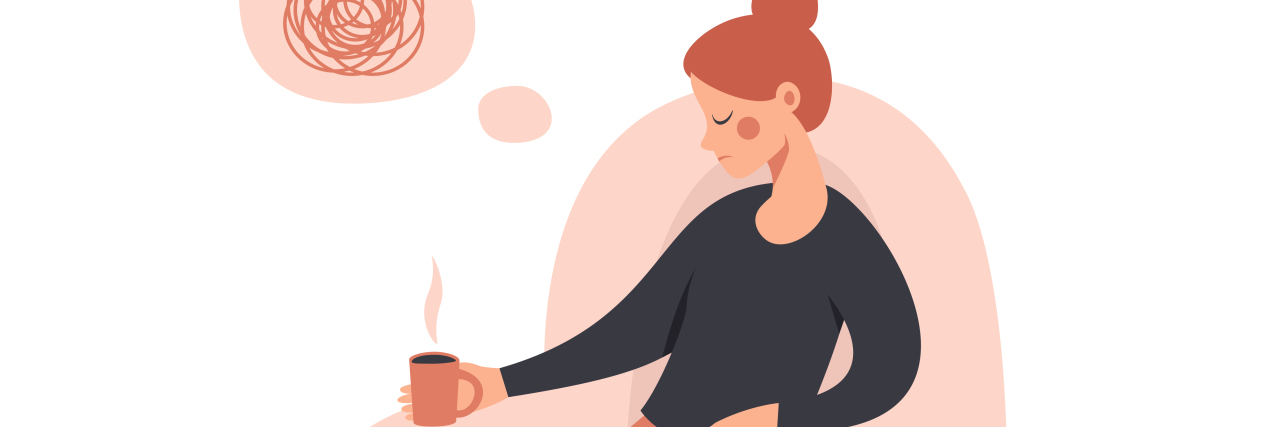Deconstructing the Feeling of Being a Burden Because of My Chronic Illness
I hesitated to write this, let alone submit it to be published for a couple of reasons.
1. I don’t want to seem ungrateful.
2. I don’t want any of my loved ones to read this and take it personally. This is not directed at anyone specific, it’s just general observations and thoughts.
One of my fears is of becoming a burden to my loved ones. I’m confident that I’m not alone in feeling this way. I think nearly everyone with a chronic illness feels the exact same way — at least some of the time. I’m sure others who have mentioned this to loved ones have gotten a similar response to the one I usually get which is, “You are not a burden! I will do anything for you — you just have to ask.” This is where not wanting to seem ungrateful comes in, because while I am absolutely certain the person saying this is very sincere, I have convinced myself that people don’t really mean it, or don’t fully understand the implications of that statement.
While I know my loved ones would move heaven and earth to help me, there is almost always an expiration date in my mind. I do have some days that are better than others, and sometimes I can do something one day but not the next and vice versa. But most of the time, if I need help with something, I always need help with it — not just that once. Stubborn pride prevents me from asking for help with a lot of things.
Most people feel good when helping other people and are enthusiastic to help any time they can, when asked — the first time, the second time, the third time and even the fourth time. It is typically the fifth time I ask for help with the same task that I start to notice the differences in the responses. There is a different tone of voice used, a different body language, and I have even heard the little sigh of exasperation. On rare occasions, I will even catch a glimpse of an eye roll. These reactions are especially devastating when they come from a spouse or partner. Most people want to be viewed and treated as an equal by their partner, so even asking for help is hard enough. And when it is met with a sigh, an eye roll, or even an irritated tone of voice, it is like getting the wind knocked out of you.
It is so frustrating to struggle with even the simplest of tasks I used to take for granted. I hate that just taking a shower or getting dressed leaves me completely worn out sometimes. And asking for help with menial tasks is at the very least humbling, if not downright humiliating. It is extremely difficult to let others see me as vulnerable or weak. Logically, I know that vulnerable does not equal weak, but it is difficult to overcome that mentality. It is a hard transition to go from being independent and not needing help for most things, to having to depend on others to help with what are considered insignificant tasks to most people.
I also fear being a burden when it comes to accommodations. I live with three other family members and they are all very accommodating, but when an accommodation is made for me, it inevitably makes it less convenient for the other members of the household. For instance, we rearranged the pantry in the kitchen and put the things I use/need the most on the lower shelves to make them easier for me to reach when seated in my wheelchair. But in doing so, that makes them harder for others to reach. I never want to intentionally inconvenience others.
Another thing I do to avoid feeling like I am a burden is to decline invitations to events or activities I enjoy because I know I am going to require some assistance to participate in said activity. In my mind, the person who extended the invitation can’t possibly understand how much of an inconvenience it will be to have me along. I have heard “I wouldn’t have invited you if I didn’t want to help you” many times, but I usually don’t believe it.
Now for the big reveal — everything up to this point is a bunch of BS! I have started the ongoing process of not buying into the notion that I am not worthy of such generosity. I have started to overcome the feeling that I did something wrong or bad to cause my illness or to deserve it. Every human being struggles with something. My struggle is physical — mobility and lack of coordination and strength. The key is to make sure the communication lines are kept open. And patience is important.
I also acknowledge that this goes both ways. I will admit I do sometimes take for granted that I will get help with something. When there is a task I get help with daily, I start to expect to receive help without asking. I also need to get better at making sure I clearly communicate my expectations. I need to make sure I clarify what I need help with. There are a lot of tasks I only need help with getting started or finished — so I am not asking for someone to do the entire task for me.
I will continue working on my communication as well as taking people at their word. When somebody says to me that I am not a burden, I need to believe them and not project my own insecurities and fears onto them. We’ll all get there — I promise!
Getty image by Ponomariova_Maria.

